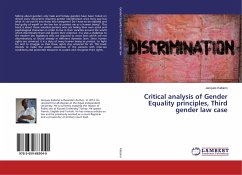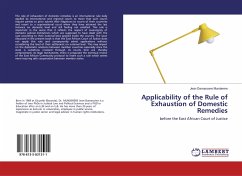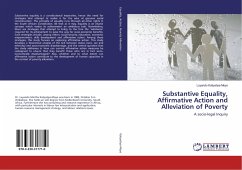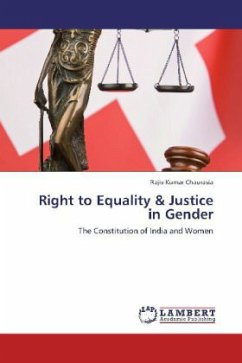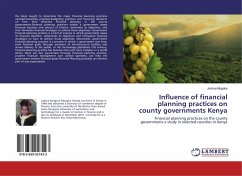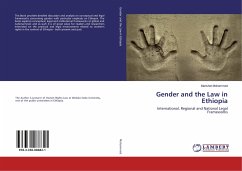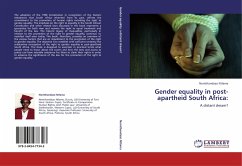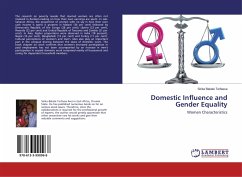
Domestic Influence and Gender Equality
Women Characteristics
Versandkostenfrei!
Versandfertig in 6-10 Tagen
24,99 €
inkl. MwSt.

PAYBACK Punkte
12 °P sammeln!
The research on poverty reveals that married women are often not involved in decision-making on how their own earnings are spent. In sub-Saharan Africa, the proportion of women with no say in how their own cash income is spent is greatest in Malawi (34 per cent) followed by Democratic Republic of the Congo (28 per cent), Liberia (23 per cent), Rwanda (22 per cent) and United Republic of Tanzania and Zambia (21 per cent). In Asia, higher proportions were observed in India (18 percent), Nepal (14 per cent), Bangladesh (13 per cent) and Turkey (11 per cent). Cultural perceptions of women's and me...
The research on poverty reveals that married women are often not involved in decision-making on how their own earnings are spent. In sub-Saharan Africa, the proportion of women with no say in how their own cash income is spent is greatest in Malawi (34 per cent) followed by Democratic Republic of the Congo (28 per cent), Liberia (23 per cent), Rwanda (22 per cent) and United Republic of Tanzania and Zambia (21 per cent). In Asia, higher proportions were observed in India (18 percent), Nepal (14 per cent), Bangladesh (13 per cent) and Turkey (11 per cent). Cultural perceptions of women's and men's roles also play an important part in the unequal sharing between the sexes of domestic work. The book chapter on work confirms that women's increased participation in paid employment has not been accompanied by an increase in men's participation in unpaid domestic work comprised mainly of housework and caring for dependent household members.




